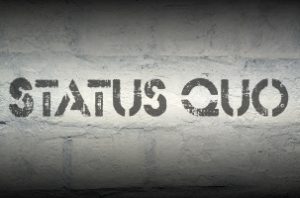 (Originally published in 2019.)
(Originally published in 2019.)
A few years ago I wrote an article on status, to rather mixed reviews among the online commenters. Today I’m going back to status, “doubling down,” as people like to say these days.
The proximate cause of this return to status is a set of studies I’ve been doing on Jesus. One of the things I’ve become clear on while doing this work has been Jesus’ strategy for getting his teachings to the people of Israel. And a major component of that strategy was to avoid any mixture of status with his personal image.
Jesus fought to maintain his “mind-slot” as an outsider and a non-powerful person. If he had allowed himself to become famous, people would have believed him for the wrong reasons. To whatever extent they believed him because he was a famous healer (or whatever), the degree of internal changes that his believers bore would be that much reduced. And people being changed on the inside was more or less the only thing he really cared about.
The details on this will have to wait for my work to be published, but I’m quite firm on that conclusion, and I think it was a stroke of genius on his part. Status, you see, poisons more or less everything it touches. As I noted in the article from a few years ago (and I’ll borrow from it for the rest of this post) status is a person’s condition, position, or standing relative to that of others.
That is, status automatically creates division and conflict, and always will.
Status forces us to think in terms of position, hierarchy, and dominance, and can’t possibly do otherwise; it is built solely upon our standing relative to others.
In other words, status causes us to think of others as adversaries and to compulsively compare positions. This is not a healthy thing.
To be very blunt about it, status is an archaic and barbaric model of seeing other beings. But it’s even worse than that: Not only does status poison our inter-relationships, it poisons our self-image. It requires us, always, to think of ourselves as above or below every other person.
Status stands before us as an evolutionary hurdle. If humanity is to rise as a species, it absolutely must transcend status. Until we do, humans will continue to think in conflict-centered terms, and human history will remain centered on conflict.
Status is a continuous belief in man versus man… a rather hypnotic belief, really. And it makes little difference whether we see ourselves on the “above” or “below” side of the exchange. If above, we’re given to arrogance and abuse. If below, we’re given to resentment and to lashing out. Both errors lead to inner decay and outer conflict.
Our present world is dominated by status-based structures. Whether kingdom, democracy or whatever, status-based structures set one man or group of men above all others. People of a “higher” position collect the production of the “lower” people, issue edicts for them to obey, and punish those who do not.
In other words, the ruling systems of the present world are incarnations of status… they are “status made flesh.” This is a primary reason why the world is perpetually at war. The very model sets man against man and group against group, automatically and unavoidably.
Status may be something we’ve been trained in; it may be something that has influenced us all our lives; but it is not “us.” It is, rather, a dirty and old habit.
Individual humans are able to transcend status fairly well. We usually learn, for example, to drop the concept among people we live with and love. And therein lies the proof that it is not truly “us.”
Humans, even while immersed in the poisonous and persistent mindscape of status, still demonstrate love and charity. That fact speaks extremely well of us. Human nature is better than we thought it was.
Again I’ll conclude with this: It’s time to start stripping status from our minds.
**
Paul Rosenberg
freemansperspective.com
